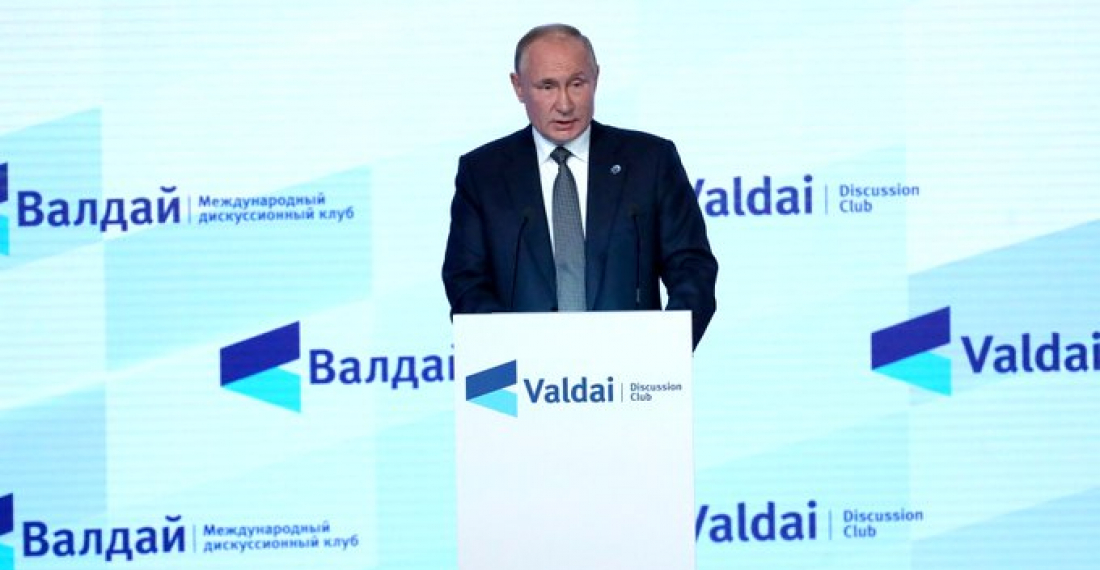The president of Russia, Vladimir Putin, gave a speech at the Valdai Discussion Club in Sochi yesterday (21 October) in which he responded to a question about the ongoing issues in the South Caucasus, and the most appropriate format for resolving these problems.
He began by praising the efforts of the prime minister of Armenia, Nikol Pashinyan, and the president of Azerbaijan, Ilham Aliyev, for their political wisdom and success in stopping the bloodshed, commending them for managing “to rise above the current political situation and make very important decisions”, without bowing to political pressure from those who were dissatisfied with the current state of events.
However, Putin noted that while nothing could be more important than the saving of human lives, there was still work to do in creating conditions for a long term settlement of the region as a whole. He added that “these conditions can be created only if both sides accept the agreements reached as long-term and both sides appreciate the advantages, I want to emphasize this, of peaceful coexistence, and everyone is interested in this.”
He went on to praise the Russian military contingent for their work in the region, noting the more general role that Russia has played in preserving the situation in the conflict zone to foster an environment beneficial for economic development and safe coexistence between the states.
Putin then discussed what he saw as the most pressing issue, namely the settlement of the border situation, and highlighted the role that Russia could play in resolving the dispute. “The most important thing now is to finally settle the situation on the border, and here, of course, nothing can be done without Russia's participation. But here even we, perhaps, do not need anyone else, except for the two sides and Russia. Why? There are very simple, pragmatic things - because there are maps in the General Staff of the Russian army, maps that show how the border between the Union republics was in the Soviet period”. He added that mutual compromise was the key to resolving these issues: “Based on these documents, you need to calmly sit on both sides. There are things there that also require mutual compromises: somewhere to align something, somewhere to exchange something - so that only this is recognized, it is clear that it is beneficial to both parties. Can this be done or not? Can. But, of course, we are also in favor of finding a multilateral format, including, say, intensifying the work of the Minsk Group. We are working on this, including with our partners”.
He concluded by stating that the main aim going forward was also to build positive relations between the countries.



